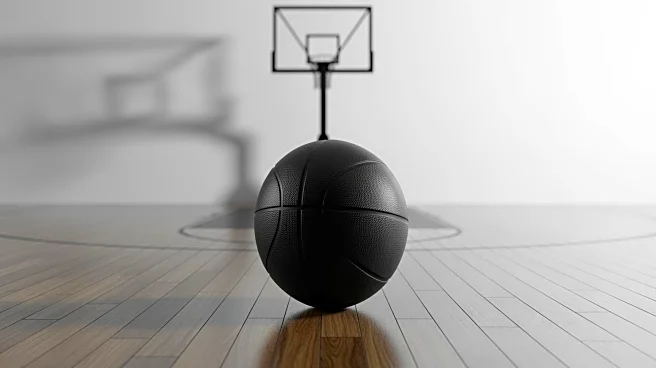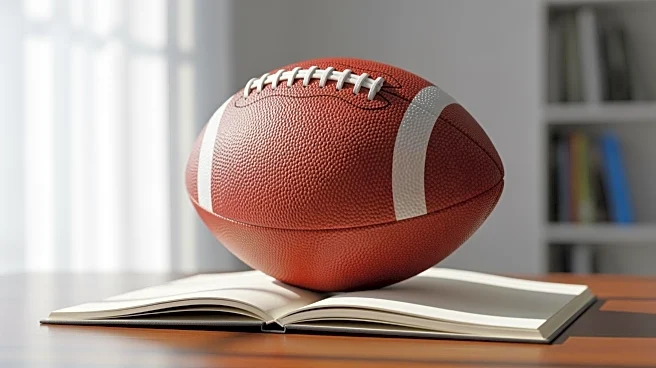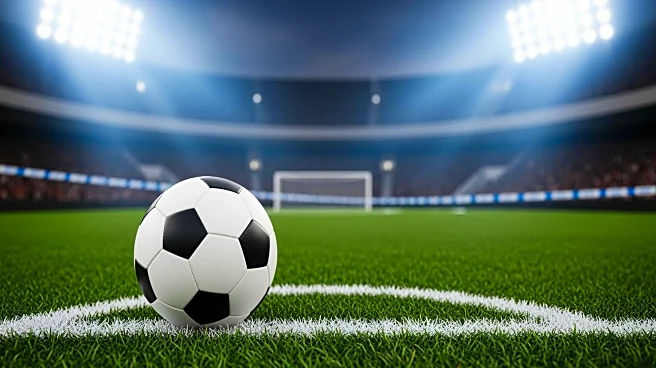What's Happening?
Milwaukee Bucks star Giannis Antetokounmpo recently sparked curiosity by asking about NCAA eligibility, specifically regarding playing for Marquette's college basketball team. Antetokounmpo, a two-time NBA MVP, humorously questioned his eligibility on social
media before Marquette's game against Southern, wondering if he could join the team at age 30. Despite the playful inquiry, Antetokounmpo remains ineligible due to his active NBA status. This comes as the NCAA has introduced new rules allowing certain G League players to return to college basketball, a policy that has seen players like London Johnson and Thierry Darlan commit to college teams. The evolving landscape of basketball pathways highlights increased flexibility, although active NBA players like Antetokounmpo are still barred from participating in college games.
Why It's Important?
Antetokounmpo's inquiry underscores the changing dynamics in college basketball eligibility, reflecting broader shifts in sports regulations. The NCAA's new rules allowing G League players to return to college could significantly impact recruitment strategies and player development. While active NBA players remain ineligible, the policy could lead to increased talent in college basketball, potentially altering competitive balances and influencing the future of player careers. This development may benefit colleges by attracting skilled players who previously bypassed college for professional opportunities, thereby enhancing the quality of college basketball and its appeal to fans and sponsors.
What's Next?
As the NCAA continues to adapt its eligibility rules, stakeholders in college basketball, including coaches, players, and institutions, will likely monitor the impact of these changes closely. The potential for more G League players to join college teams could lead to strategic shifts in recruitment and team composition. Additionally, discussions around further eligibility adjustments may arise, considering the evolving nature of basketball careers and pathways. Colleges may explore ways to leverage these changes to enhance their programs and attract top-tier talent, while players might consider the benefits of college experience alongside professional aspirations.
Beyond the Headlines
The inquiry by Antetokounmpo, although humorous, highlights the cultural and ethical dimensions of sports eligibility rules. It raises questions about the balance between professional and collegiate sports, the role of education in athlete development, and the potential for regulatory changes to impact the traditional college sports model. As pathways to professional sports become more diverse, the NCAA and other governing bodies may face pressure to further adapt their rules to accommodate the evolving landscape, ensuring fair opportunities for athletes while maintaining the integrity of college sports.















